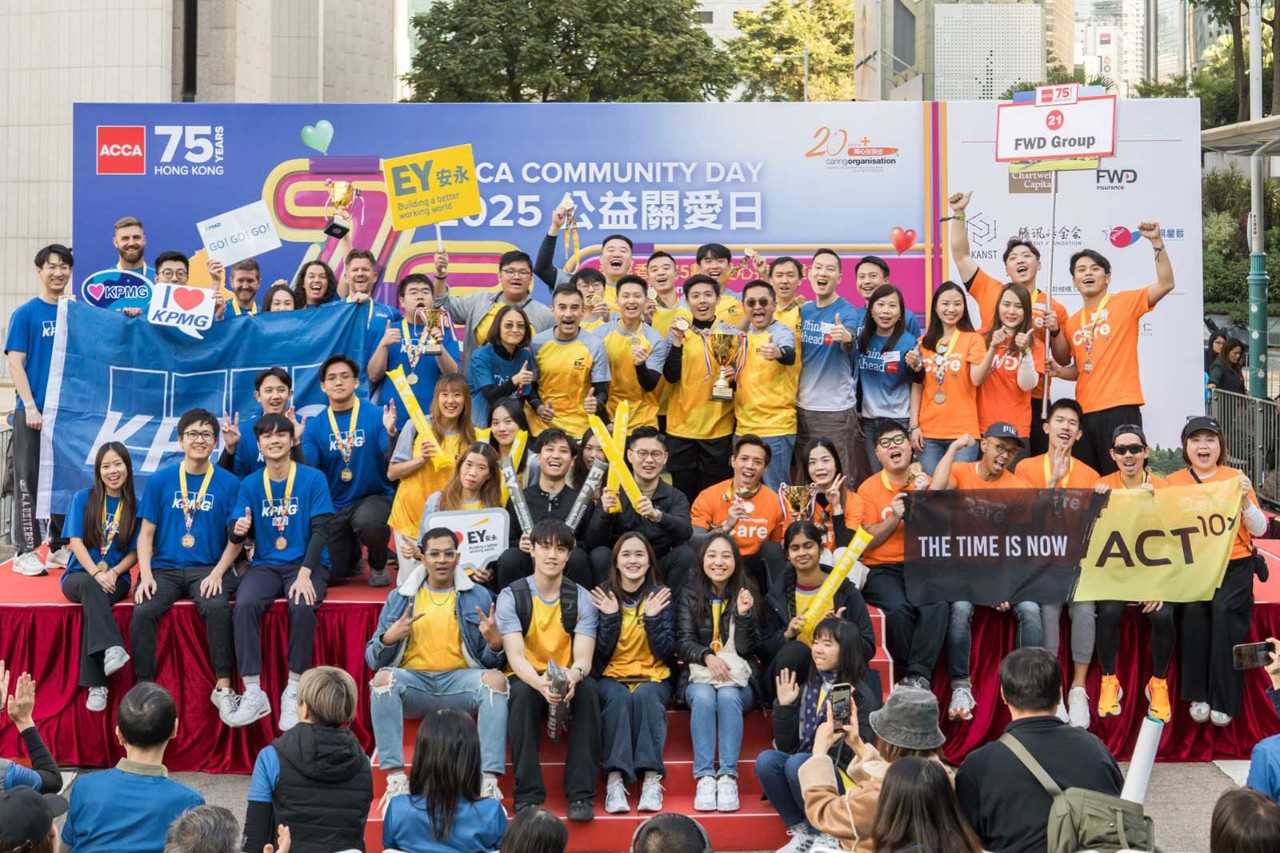
The path to sustainability, marked by daily progress and contributions from organisations of all sizes, is underpinned by a cultural shift, tech-driven change and overcoming sustainability assurance challenges. Crucial to keeping the momentum going is building the right talent pipeline.
This idea was front and centre as key Chinese financial players and accounting experts convened at the second ISSB-ACCA joint roundtable on sustainability, held in Beijing last November with the theme ‘Inspire, Integrate, and Innovate’, where the practicalities of implementing IFRS Sustainability Disclosure Standards were tackled.
The timing of the roundtable was particularly apt. Following the Ministry of Finance’s explanation of the drafting on Chinese sustainability standards, a national unified Sustainability Disclosure Standards System will be established by 2030.
The move marks a major shift in China’s broader strategy to transition to a green economy and harmonise with international practices.
Top-down policy and bottom-up engagement are both needed
As Chinese companies prepare for stricter sustainability reporting requirements, they increasingly recognise that successful implementation requires both top-down policy changes and bottom-up engagement.
Cultural shift
At the roundtable, Tina Chiang, senior director of Ant Group Reporting, detailed how the fintech business has woven sustainability into its core operations. ‘We try to develop low-carbon and green consumption habits,’ she explained. ‘For example, the company incentivises environmental responsibility by offering rewards to employees who choose green transportation and sustainable lodging options.
‘With ESG standards, we will have a better framework to guide our practices. The awareness of people will be raised,’ she said.
Better data accuracy ensures reliable reporting
The cultural shift is evident in Ant Group’s accounting and disclosure team, where sustainability and standards considerations now influence investment decisions through the application of green criteria and energy consumption monitoring. The company has also raised its standards for data accuracy to ensure reliable sustainability reporting.
Tech drives change
Meanwhile, the mounting pressure to meet global sustainability standards is creating a growing demand for technology solutions that can simplify complex non-financial reporting.
SusallWave CEO Bai Hong said: ‘When we’re talking about sustainability reporting from an operational perspective, a company trying to release their non-financial report faces a very big workload and painful business. We try to provide smart solutions to leading businesses, including building an e-platform that embeds ISSB standards together with other standards.’ SusallWave’s approach focuses on optimising the entire value chain – from data selection to final disclosure.
SusallWave’s platform already serves hundreds of leading companies, demonstrating the scalability of digital solutions in sustainability reporting. ‘The government strongly encourages businesses to move quickly forward to integrate with global standards. Currently, it’s just a small piece of bread,’ Bai said, ‘but in the future, I am quite confident it’ll become bigger.’
Assurance challenges
While sustainability reporting isn’t new – some companies have been producing sustainability reports for over a decade – the emerging standards represent a quantum leap in expectations. Companies must now meet stricter requirements for accuracy and completeness, backed by robust assurance processes that parallel those of financial auditing.
Fan Zhiwei, partner at Zhongshen Zhonghuan, said: ‘The convergence of financial and non-financial reporting frameworks is setting new challenges for assurance practices.’
Citing the new ISSA 5000 standard from the International Auditing and Assurance Standards Board, Fan highlighted that sustainability assurance differs in scope and assurance level from financial assurance.
‘Unlike traditional financial audits, sustainability assurance involves diverse stakeholders and requires specialised knowledge across multiple disciplines,’ Fan said. It is therefore necessary to rely on experts and think about group-level audit and assurance for information along the value chain.
The challenges are compounded by the very nature of sustainability information, which often includes qualitative, forward-looking and estimated data, making verification especially challenging. ‘That is something new and that is a big challenge. We need to work together,’ said Fan.
‘The disclosure of sustainability information is a big challenge’
Talent gap
As companies brace for a new era of both financial and sustainability disclosures, the demand for ESG expertise has become more urgent than ever.
‘All companies will be facing both the social and economic bottom lines,’ said Ye Kangtao, vice president of the Beijing National Accounting Institute (BNAI). ‘The key challenge is the lack of talents in sustainability.’
‘We have gone beyond traditional disciplines’
In response, BNAI has forged a new partnership with ACCA to develop comprehensive ESG education programmes. ‘We have been actively exploring talent cultivation models and pathways for ESG,’ Ye told the roundtable. ‘We have gone beyond traditional disciplines and built an interdisciplinary syllabus and curriculum focused on sustainability.’
To bridge the gap between theory and practice, BNAI has also developed partnerships with leading enterprises so that learners can have opportunities to practise and apply knowledge in the field.
Capacity building is a shared responsibility between us and the educational institutions. Sue Lloyd, vice-chair of the International Sustainability Standards Board, said: ‘At the IFRS Foundation, we know that we have a very important leadership role that isn’t finished by publishing standards. We are here to help jurisdictions make decisions and help companies and others around the world prepare to use our standards.’
‘We can’t do all of this ourselves. So, one of the really important things that we do is to make sure that we develop materials that we can use in conjunction with others to explain the path to using our standards. And we also work with bodies such as IOSCO [(the International Organization of Securities Commissions)] that can help us with these engagements at a regulatory level to help jurisdictions and their decision-making, and also to assist in educating and training regulators and others around the world.’
More information
Read our companion article, Achieving sustainability together.

